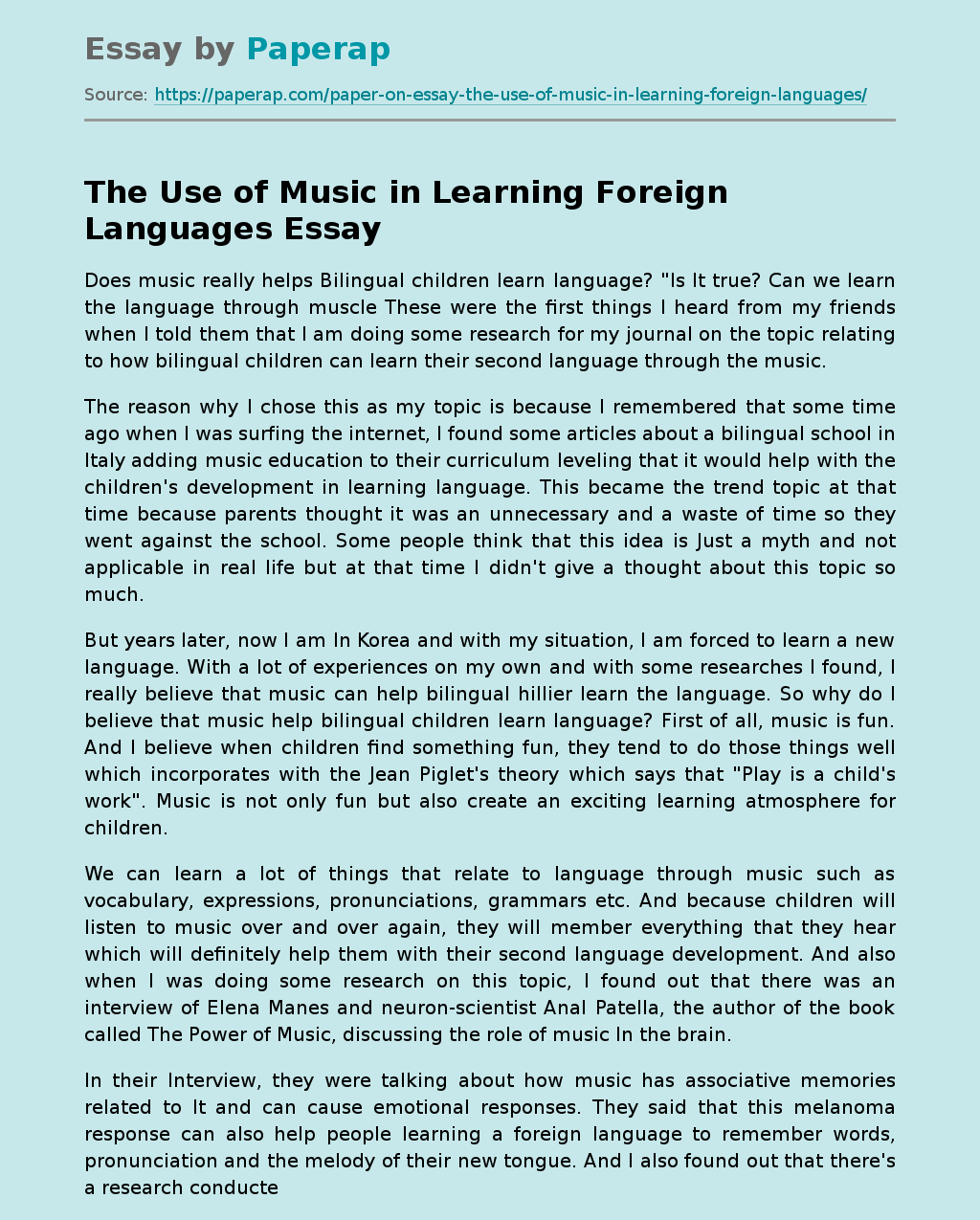The Use of Music in Learning Foreign Languages
Does music really helps Bilingual children learn language? “Is It true? Can we learn the language through muscle. These were the first things I heard from my friends when I told them that I am doing some research for my journal on the topic relating to how bilingual children can learn their second language through the music. The reason why I chose this as my topic is because I remembered that some time ago when I was surfing the internet, I found some articles about a bilingual school in Italy adding music education to their curriculum leveling that it would help with the children’s development in learning language.
This became the trend topic at that time because parents thought it was an unnecessary and a waste of time so they went against the school. Some people think that this idea is Just a myth and not applicable in real life but at that time I didn’t give a thought about this topic so much.
But years later, now I am In Korea and with my situation, I am forced to learn a new language. With a lot of experiences on my own and with some researches I found, I really believe that music can help bilingual hillier learn the language. So why do I believe that music help bilingual children learn language? First of all, music is fun. And I believe when children find something fun, they tend to do those things well which incorporates with the Jean Piglet’s theory which says that “Play is a child’s work”.
Music is not only fun but also create an exciting learning atmosphere for children.
We can learn a lot of things that relate to language through music such as vocabulary, expressions, pronunciations, grammars etc. And because children will listen to music over and over again, they will member everything that they hear which will definitely help them with their second language development. And also when I was doing some research on this topic, I found out that there was an interview of Elena Manes and neuron-scientist Anal Patella, the author of the book called The Power of Music, discussing the role of music In the brain.
In their Interview, they were talking about how music has associative memories related to It and can cause emotional responses. They said that this melanoma response can also help people learning a foreign language to remember words, pronunciation and the melody of their new tongue. And I also found out that there’s a research conducted by Northwestern university to support this idea. The research links musical training to learning language, speech, memory, attention and vocal emotion.
Researcher Nina Krause said the data strongly suggested that learning musical sounds could enhance the brain’s ability to adapt to change which are important for learning new language. And in her research, children who are musically trained are better at observing pitch changes in speech and have a better vocabulary and reading ability than children who did not receive music training. I mound this research very convincing because myself experienced the same thing. When I started learning Korean for the first time, I was drawn to KOP music.
I listened to them a lot and always sing along. Sometimes I would look up for the lyrics a lot of words that were not in textbooks and teachers even said that my Korean expression is really natural. I think it is safe to say that music really help bilingual children learn their second language. I hope that Journal persuade bilinguals out there to listen to more music and create awareness that the way to learn the foreign language effectively is as easy as turning on a music.
The Use of Music in Learning Foreign Languages. (2019, Jun 20). Retrieved from https://paperap.com/paper-on-essay-the-use-of-music-in-learning-foreign-languages/

